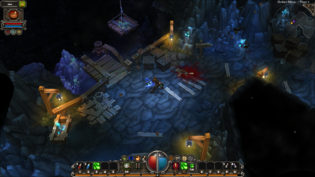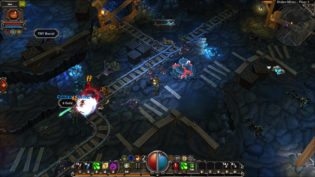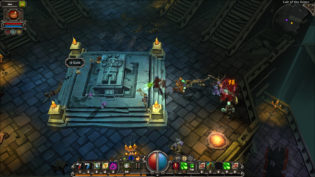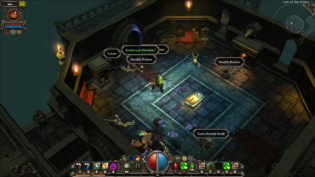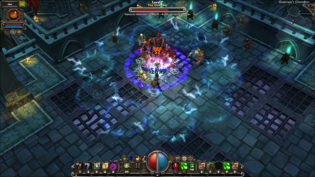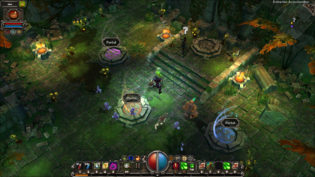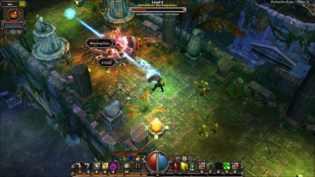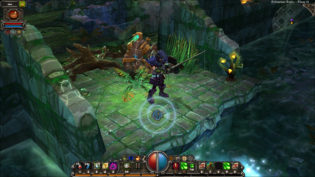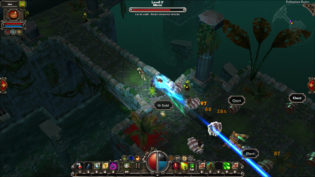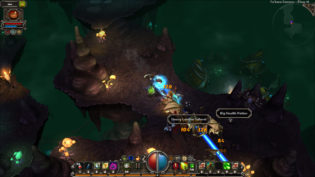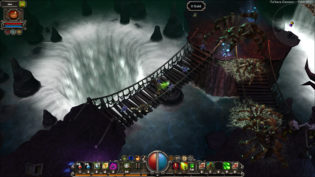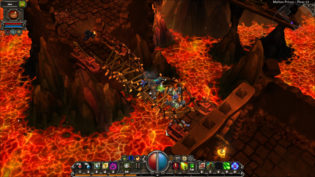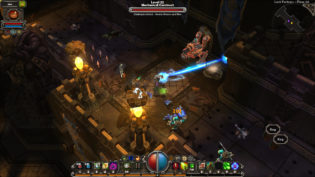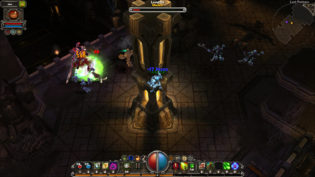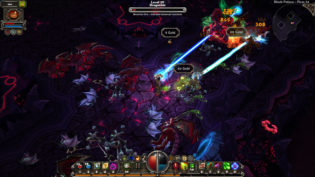Action RPGs are popular again and have been for the past decade. But there was an odd period of time when seemingly no one wanted to release a classic “Diablo-clone” title, and during those strange times Torchlight appeared out of nowhere to save the fans of the genre from the lull. Revisiting it today is a bit odd, but after replaying Diablo 1 and 2 (and refreshing my memory on 3, on which I really have nothing more to say), I felt like I had to.
In 2009, when Torchlight came out, people were basically begging for a new action RPG of this kind. Titan Quest and its expansion were in 2006 and 2007 and sadly didn’t sell well enough. And the developers, who has formed Crate Entertainment already, just announced the plans to do what would become Grim Dawn many years later. Sacred 2 from 2008 wasn’t liked by many and it did diverge from the formula in several ways. Diablo III was just announced… Even Fate, the direct mechanical predecessor of Torchlight, was already several years old, although it was still being updated with new content. And then Torchlight appeared with the Big Names for the management and Matt Uelmen bringing his Diablo soundtrack magic to the music and people were intrigued.
At it’s core Torchlight is very simple. In a way, it’s a mix of the very first Diablo with already mentioned Fate, and that in itself is enough to be interesting. You have a town and a big dungeon underneath it, you pick one of three basic classes that correspond to Warrior, Rogue and Sorcerer and go down to kill monsters, get experience, find loot, learn skills, drink potions and use a town portal to go back into town. But since the game was released post Diablo II, a lot of ideas and mechanics that became normalized since then are also added into the mix. For example – there are magic spells that every character can learn, just like in the first Diablo, but those have limited slots and otherwise all classes focus on their skill trees that have plenty of unique active and passive abilities – something that the original Diablo didn’t have. The gems, the transfusion, different enchantments and many categories of loot are also here as one would expect. And death worked more closely to how it does in modern action RPGs, so you couldn’t just save and reload to avoid death.
Fate brought its influence as well. Instead of hired help you have a pet, who has his own inventory, can help you in battle and can even run away and sell items for you, so you don’t need to leave the dungeon. Fishing is possible at specific spots and most caught fish can turn your pet (temporarily) into a monster with added benefits. Additionally, a concept of “Fame” is added that is separate from experience and it grows from performing feats like finishing quests and killing special named monsters, and every time you’d level up the Fame you’d get one skill point, in addition to the one you always get when you level up the character via experience. And finally, a concept of “retiring” the character is possible when the main game story is finished, which makes the character no longer accessible, but his “heir” can inherit some of the fame and one of the items that gets improved in transition.
It’s all very simple, really, and as far as UI/UX goes Torchlight really nailed the mechanical simplicity of such “Diablo-clones”. Everything is very simple, user-friendly and fun to do. The dungeon you go through is more varied than what you had in the original Diablo and you can do special infinite dungeons as well. Quests are basically randomly generated to go along your main exploration path. Every class is fun to play and some of the visual readability is improved in comparison to what Diablo did up until that point. It was fun to play, and still is.
But it’s streamlined and focused on pure mechanics of the genre to a fault. There is an interesting premise for the game world here, but it’s so surface level you can hardly care. The visuals and the tone is too cheery to take it seriously. And the fact that most of the content, apart from the main story, is clearly randomly generated to just “exist” makes the whole experience feel hollow. In fact, I didn’t even realize it until now, right after having replayed the first 2 Diablo games, but… Diablo titles were never really about loot or gold. You could vacuum everything off the floor and sell it in town, but you never really had to and, in fact, the games worked better if you didn’t and focused only on things you would consider important. In contrast, Torchlight (and Borderlands, released the same year) were really about grabbing everything off the floor and then spending lots of time in the menus selling the garbage. Once again – you don’t really have to, but it’s so much easier to grab everything and then sell it (via the pet or a quick jump to town), that you always do.
Though, that’s not the only fault the game has. Another thing that differentiated it from other similar titles was just how crazy vertical the world was. Even Diablo III wouldn’t make the levels quite so multi-leveled and looping unto itself. For a good reason too – the game doesn’t handle this all that well when it comes to combat. Combat with Shift pressed in general works really poorly, for some reason, with your character managing not to hit enemies directly in front of them unless specifically aimed at oftentimes. But when you’re doing it on stairs things get completely screwed. As a melee character it’s just frustrating, but as a ranged character it becomes incredibly frustrating. And if you also use summoned characters, they get stuck on different levels so often, you’d be long dead in Diablo II as a necromancer if it happened there.
Playing Torchlight in 2023, with so many cool games that came since then, feels quite a bit more flat than it used to in 2009. The music is still fantastic, the basic mechanics are still great, the core loop is catchy. But something is missing. Original Diablo, for how frustrating it can be without mods nowadays, has more interesting little elements to it and the atmosphere of the game still holds it above what it is. Torchlight doesn’t have that. But it plays really fun. And I still enjoyed it a lot, even if I do feel like this down to basics approach to “Diablo clones” could really go with another newer take.


